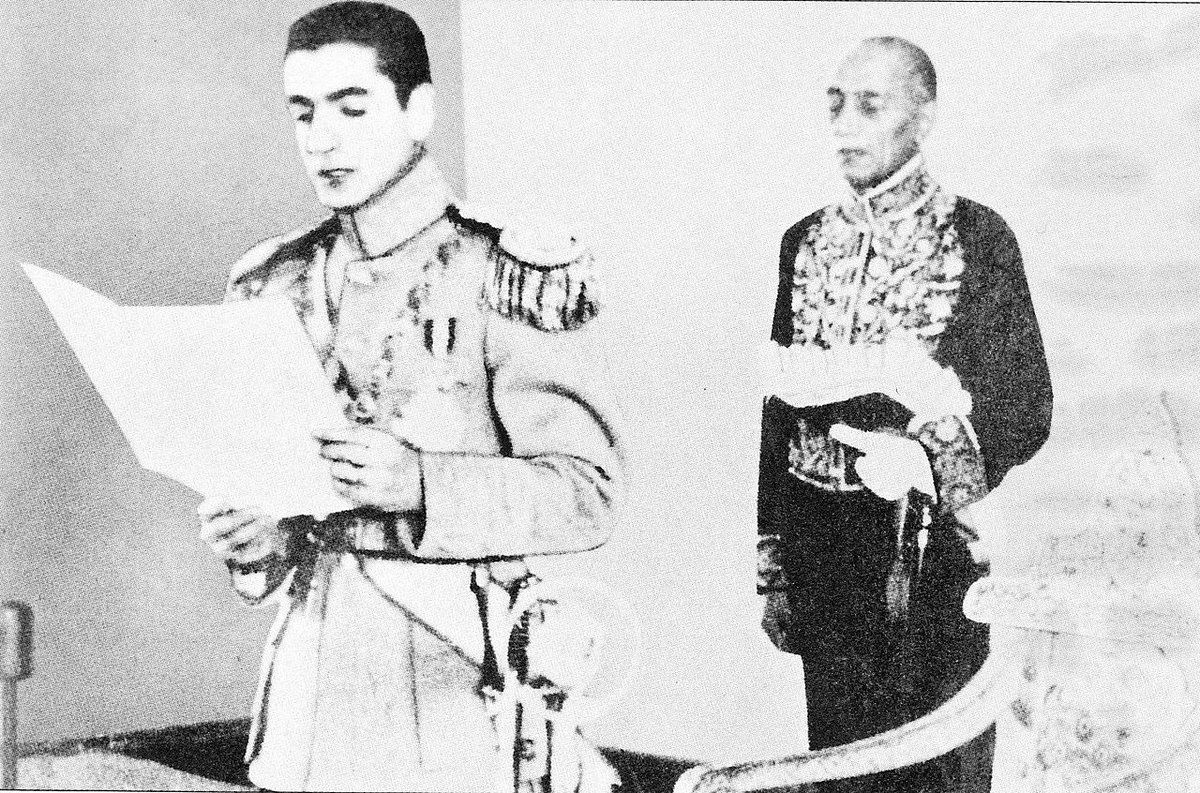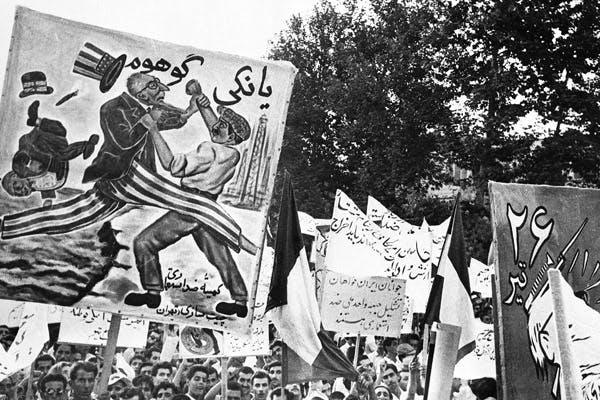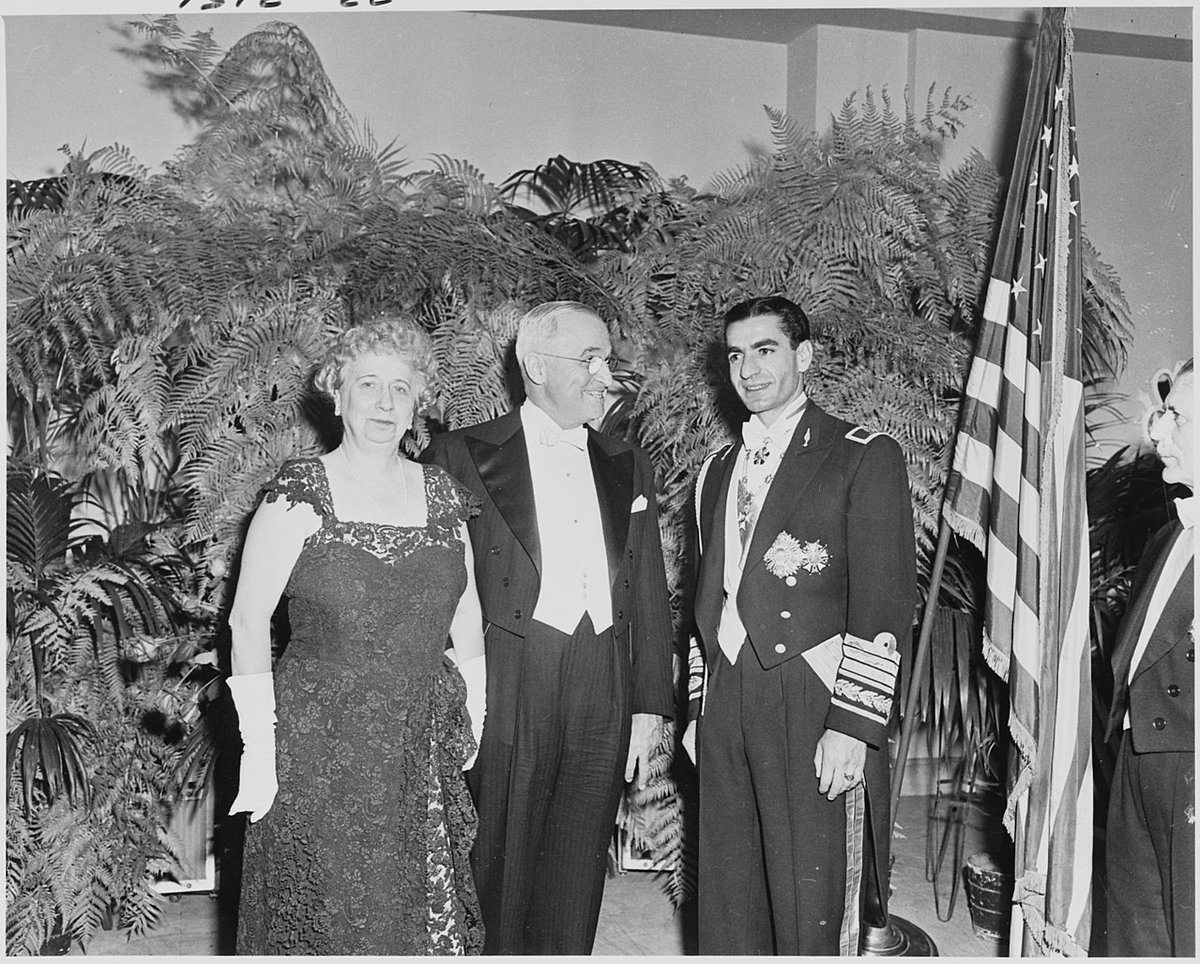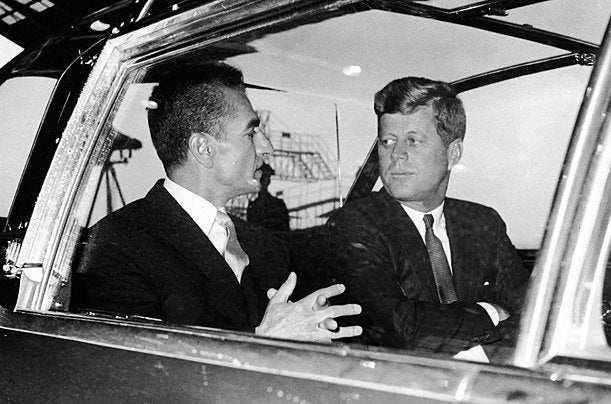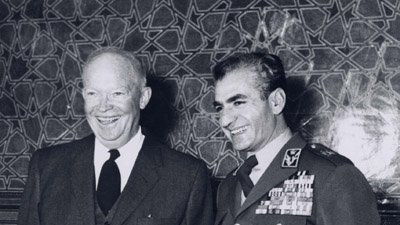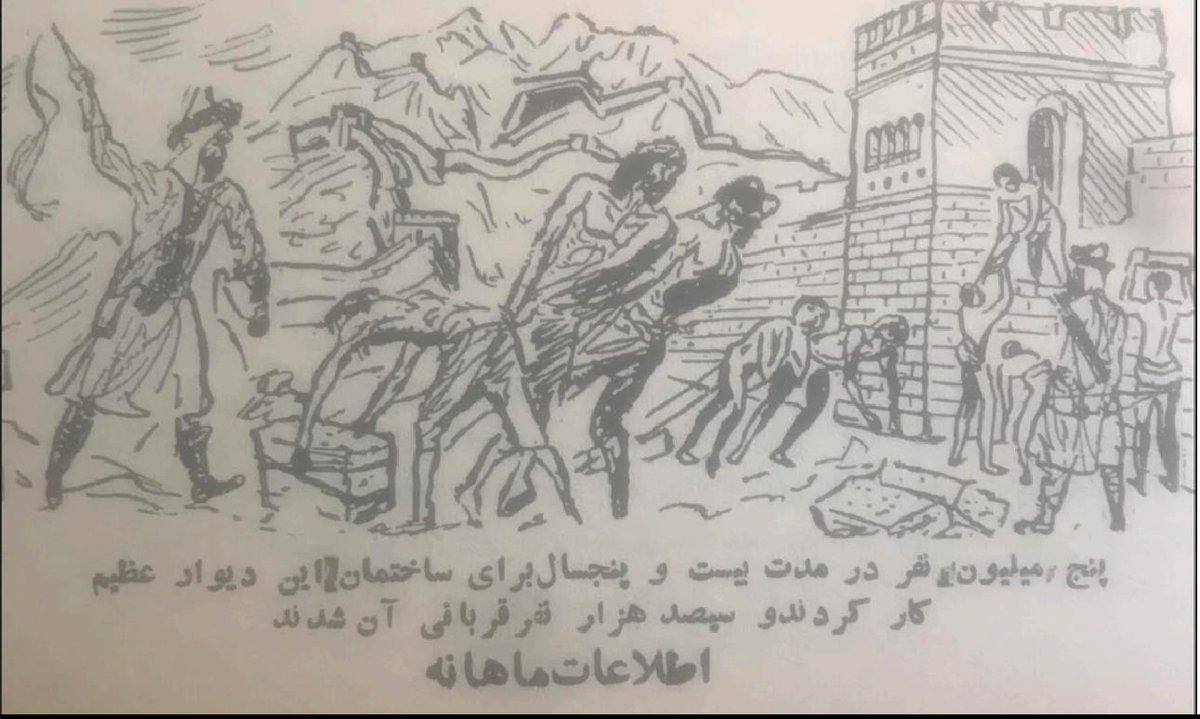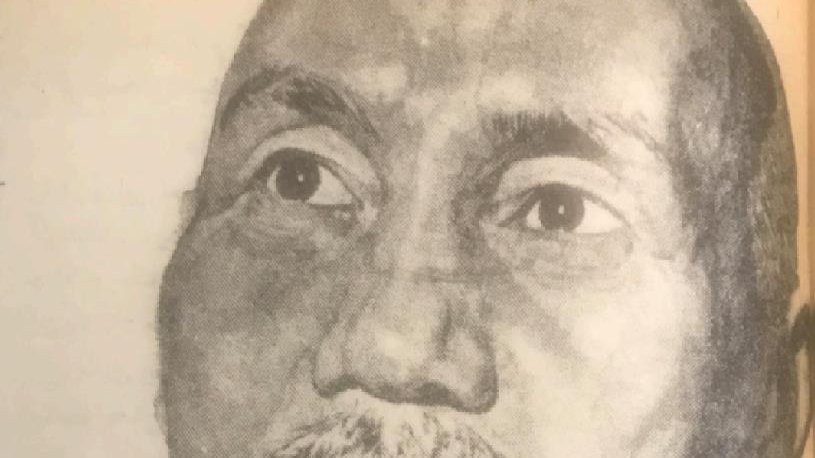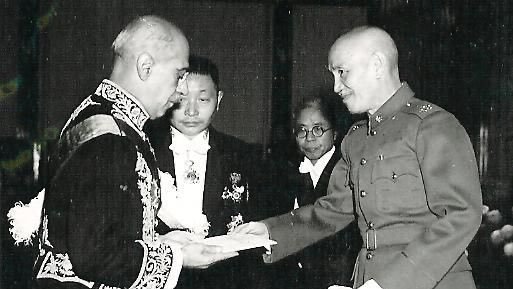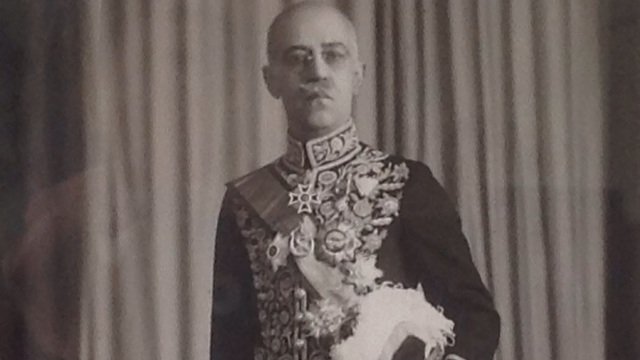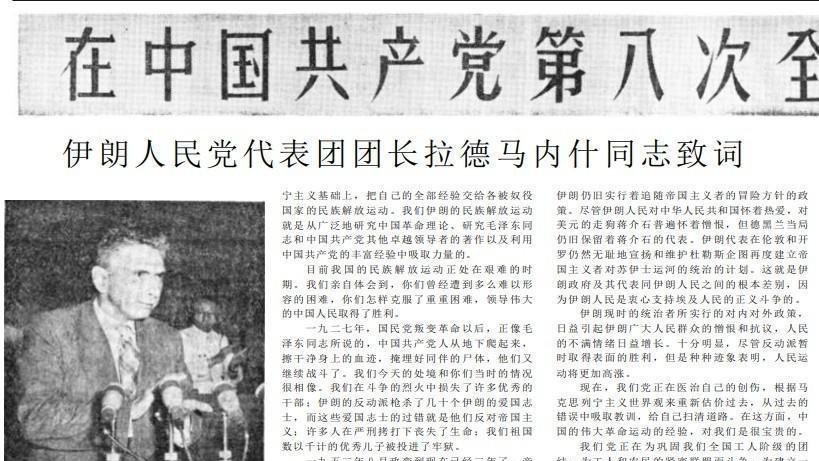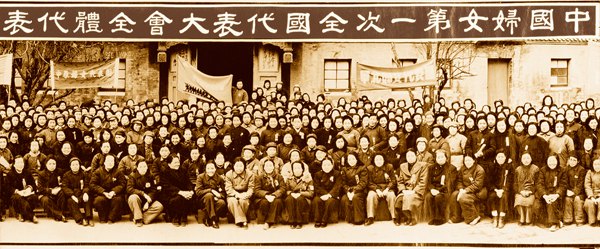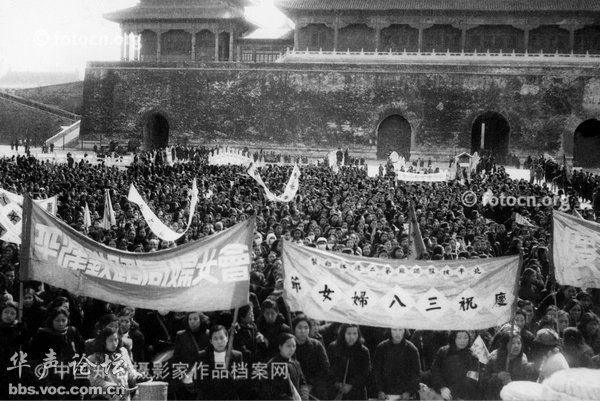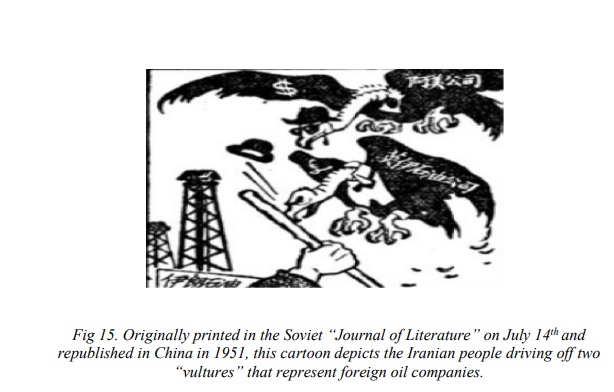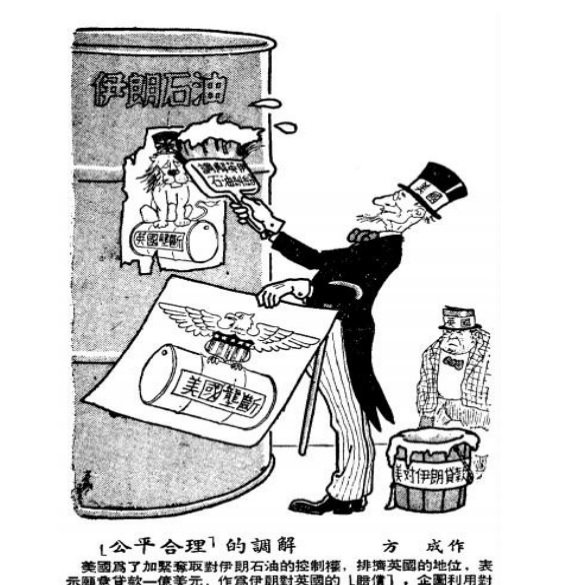1/ Iran's interest in China peaked after the 1949 revolution. Two competing ideas about China were proposed in the Iranian public sphere: one which saw China as a negative example to avoid, and one which saw China as a positive model for the future. #IranChina - B.F @IranChinaGuy
2/ In the years after the CCP victory, the question of how China was “lost” by the West became a serious preoccupation for Western politicians and the American public. Historian Robert Newman to remarked that “[t]o many Americans, the atheists defeated the Christians in 1949."
3/ Iranian politicians shared these sentiments in part because of political connections with America and shared sources of information. The government was anti-communist both on ideological and practical grounds. Following Mohammad Reza Shah’s accession to the throne in 1941...
4/ the monarchy's weakness allowed political parties and open politics to re-emerge. Among the many political movements of this period, the Communist Tudeh Party was the only one that developed a base among the masses and was highly successful in organizing oil refinery workers.
5/ At the same time, the United States had begun to view affairs in the Middle East through a Cold War lens. The Shah had established a close relationship with the United States by portraying himself as a "bulwark against Communism" in the Middle East. All of this contributed...
6/...to a state-sponsored image of China that was heavily influenced by Western scholarship and American politics, although not always explicitly political.
Articles about Chinese history and culture are presented in a way that reflects the anxieties of the Iranian state.
Articles about Chinese history and culture are presented in a way that reflects the anxieties of the Iranian state.
7/ One article on Qin Shi Huang defends reports that he worked over 5 million men to death, as it was to “prevent the invasion of northern barbarians” and “bring all Chinese soil under the banner of a single government and restore the greatness and power of the monarchy.”
8/ The same article goes on to decry the practice of foot
binding, which was often described as “torture”. This discourse was a way of “othering” China by highlighting a cultural practice that seems barbarous to Iranian and Western audiences, as some U.S media does to Iran today.
binding, which was often described as “torture”. This discourse was a way of “othering” China by highlighting a cultural practice that seems barbarous to Iranian and Western audiences, as some U.S media does to Iran today.
9/ Other articles were more political. In “From
Loving the Maxim Gun to the Hatred of Karl Marx,” one author writes: “Like the melted black material that flows down from the mountain of fire, the volcano engulfs the surrounding plains…the Chinese Communists attacked Mukden…”
Loving the Maxim Gun to the Hatred of Karl Marx,” one author writes: “Like the melted black material that flows down from the mountain of fire, the volcano engulfs the surrounding plains…the Chinese Communists attacked Mukden…”
10/ One of the most interesting sources is the testament of Mehdi Farrokh, an Iranian statesman and diplomat best known for his political memoirs and writings on Afghanistan. He was ambassador to China briefly in 1948-1949, and saw the revolution first-hand from Nanjing.
11/ In a letter to a friend who had asked about the significance of the Chinese revolution to Iran, Farrokh wrote:
"My friend, now by reading my letter you will understand why I took the time to answer your questions...Note also that your country is in danger from...
"My friend, now by reading my letter you will understand why I took the time to answer your questions...Note also that your country is in danger from...
12/ ...the Soviet Union and the Fifth Column of the Russians, who are called Tudeh and support peace and anti-colonialism, etc. in your country...The religion of Islam
does not agree with the Communists in any way."
But not everyone saw China and Communism in negative terms.
does not agree with the Communists in any way."
But not everyone saw China and Communism in negative terms.
13/ Despite the lack of official connections, unofficial Sino-Iranian ties existed in the 1950s and 1960s between the Tudeh Party and the CCP. International conferences allowed Iranian leftists to visit China and see the changes the country was undergoing.
14/ The Tudeh visited China several times. In 1958, Reza Radmanesh spoke at the 8th CCP Party Congress:
"The victory won by the Chinese people under your leadership against domestic reaction and foreign imperialism is of historic significance, especially for the oppressed...
"The victory won by the Chinese people under your leadership against domestic reaction and foreign imperialism is of historic significance, especially for the oppressed...
15/ ...people in Asia. The Iranian people truly see their own liberation from foreign imperialism and the exploitation of feudal merchants in the victory of the Chinese revolution."
16/ In May 1951, in an open letter to then-Prime Minister Mohammad Mosaddeq, the Tudeh urged Mosaddeq to “recognize the People's Government of China which is the base of liberty and peace in Asia.”
17/ At the 1949 Asian Women's Conference in Beijing, a Tudeh Youth activist Mahin Baluch spoke on the plight of Iranian women:
"Chinese sisters, your struggle and your success...have brought infinite help to our common struggle...For centuries, women and mothers in Iran...
"Chinese sisters, your struggle and your success...have brought infinite help to our common struggle...For centuries, women and mothers in Iran...
18/ ...have lived in distress, and were enslaved by a feudal and exploitative system...The struggle of Iranian women is to liberate them from feudal exploitation, oppose colonialists, and strive for national independence." Her comments were broadcast in translation on Xinhua.
19/ China also used this connection in its propaganda. From 1949 to 1959, the Chinese press published over a hundred articles about Iran with titles like: “U.S. Imperialism Instigated the Iranian People to Kill Each Other,” “The Anti-Imperialist Struggle of the Iranian People,”
20/ And even published political cartoons lampooning issues in Iranian politics, like this piece on the replacement of a British oil monopoly with equally colonial American interests.
That's all for now! I hope nobody minds me sneaking in a final post or two a day after I was supposed to leave. >.> -B.F @IranChinaGuy

 Read on Twitter
Read on Twitter
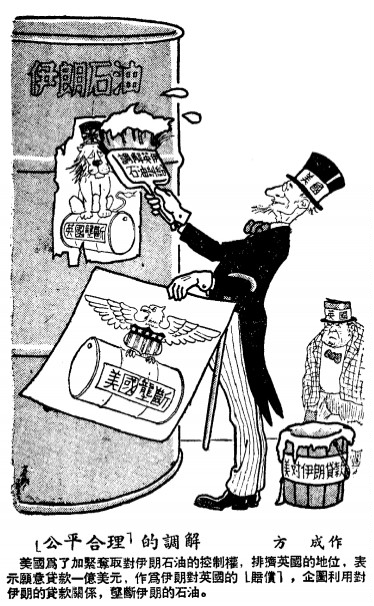

![2/ In the years after the CCP victory, the question of how China was “lost” by the West became a serious preoccupation for Western politicians and the American public. Historian Robert Newman to remarked that “[t]o many Americans, the atheists defeated the Christians in 1949." 2/ In the years after the CCP victory, the question of how China was “lost” by the West became a serious preoccupation for Western politicians and the American public. Historian Robert Newman to remarked that “[t]o many Americans, the atheists defeated the Christians in 1949."](https://pbs.twimg.com/media/ErdlbbqXUAI39Xo.jpg)
